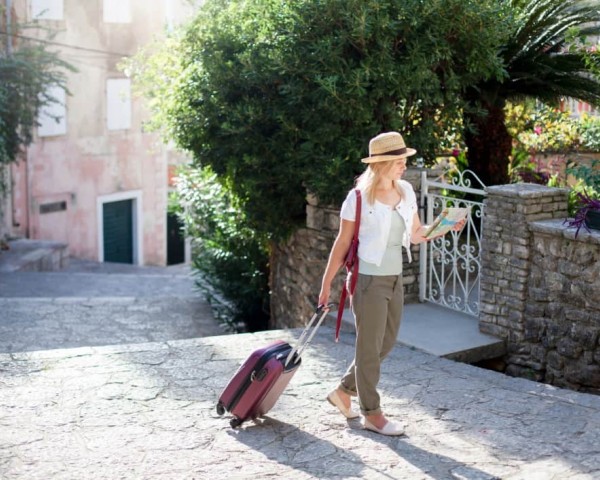The summer time of 2025 is proving tough for Europe. An intense heatwave, pushing temperatures towards 115°F (46°C), is severely impacting European tourism in in style locations like France, Spain, Portugal, Italy, and Greece.
The results vary from the non permanent shutting down of landmarks such because the Eiffel Tower to a noticeable improve in heat-related hospital visits, placing a pressure on current infrastructure. It is undeniably altering the holiday expertise and, frankly, elevating some very robust questions relating to vacationer security, environmental sustainability, and simply what the longer term holds for European tourism.
Europe Below Heatwave
File temperatures have been famous, most notably in Portugal, the place the city of Mora recorded temperatures as much as 115°F (46°C), figures reported to be among the highest ever seen in Europe, in accordance with their climate company, IPMA. Concurrently, hospitals in Italy have skilled a bounce of 15-20% in admissions associated to sicknesses resembling dehydration and heatstroke; tragically, some circumstances have resulted in fatalities, illustrating the severity of this case. Moreover, marine heatwaves are affecting the Mediterranean, driving sea temperatures as excessive as 78-86°F (25-30°C). Coastal areas in Spain and Greece are struggling to supply their residents and vacationers much-needed aid from the oppressive warmth.
Take the Eiffel Tower, for instance. Its summit was closed on July 1st and 2nd when Paris reached 104°F (40°C), demonstrating the disruption’s scope. Unable to benefit from the views, guests congregated across the Trocadéro Gardens’ fountains, a small indication of the lengths individuals are going to in an effort to escape the sweltering circumstances. Overcrowding and closures as a result of security considerations plague seashores throughout the realm, lessening the attraction of the basic Mediterranean getaway.
The Financial and Environmental Affect
Tourism is a crucial a part of the EU’s GDP, contributing about 10%, so naturally, disruptions are a serious financial problem. Closed sights, decreased buyer satisfaction, and stretched infrastructure put income in danger in international locations that depend upon summer time journey. On the environmental aspect, the heatwave is making current issues worse. Elevated cooling calls for in cities improve emissions, and rural areas dealing with drought additionally cope with further water shortages due to tourism. There may be more and more vocal frustration coming from native farmers and conservationists, who’re very involved in regards to the pressure on ecosystems.
Think about Barcelona. Protests towards overtourism are getting extra intense, and activists have even used water pistols to protest overcrowding and useful resource shortages. These actions present rising dissatisfaction with a method of tourism that local weather change is making very tough to take care of.
EU Local weather Coverage Below Scrutiny
The European Fee’s steered 2040 local weather goal – a 90% discount in internet carbon emissions – has been criticized by Greenpeace for not going far sufficient, falling wanting the 90-95% home reductions steered by the European Scientific Advisory Board on Local weather Change. The inclusion of worldwide carbon credit, letting as much as 3% of reductions come from paying non-EU international locations, together with counting on “everlasting” carbon removals, which may hurt biodiversity, has triggered worries about attainable loopholes undermining the purpose. In response to Greenpeace, such compromises could considerably decrease precise emission cuts, probably weakening the EU’s management within the local weather sector.
Nonetheless, the Fee’s plan does embrace some good factors, resembling utilizing scientific steering, analyzing the prices of inactivity, and prioritizing biodiversity and a good transition. Because the proposal proceeds to the European Parliament and nationwide ministers for dialogue, hopefully to be finalized earlier than the UN’s COP30 in Brazil on November 10, 2025, there’s rising strain to create a stronger and fairer local weather technique.
A Name for Sustainable Tourism
This heatwave emphasizes the necessity for rethinking European tourism. Cities are contemplating choices like capping cruise ship numbers, managing lodging, and investing in climate-resistant infrastructure. The purpose is to discover a steadiness between the monetary advantages with ecological and social sustainability. For vacationers, the excessive temperatures act as a stark reminder of the EU’s local weather scenario, main some to rethink their journey plans or select cooler places. Europe is at present dealing with a very scorching summer time, which brings collectively unprecedented warmth ranges, some disruption to tourism, and ongoing discussions relating to local weather insurance policies, marking an important second. To make sure that tourism stays sturdy and its well-known locations keep energetic and out there for generations to come back, Europe ought to deal with infrastructure shortcomings, management extreme tourism, and undoubtedly pursue formidable home emissions reductions.




